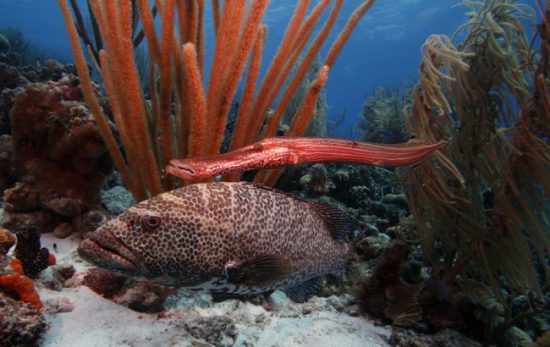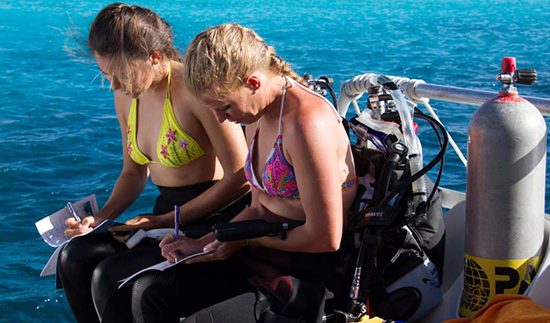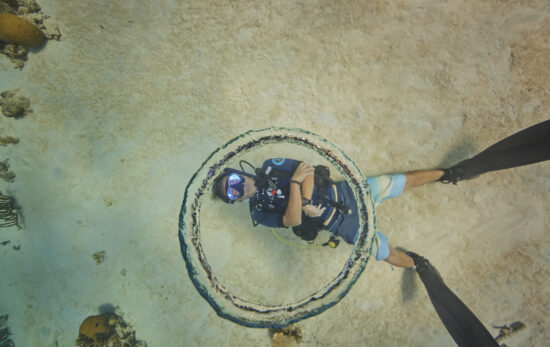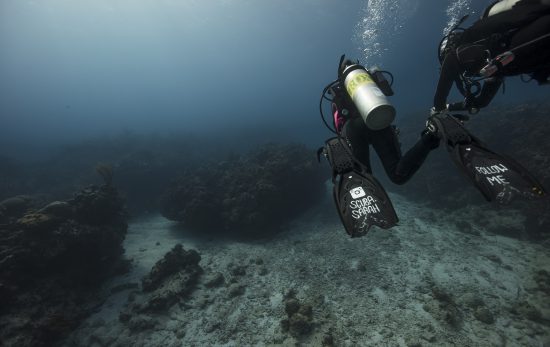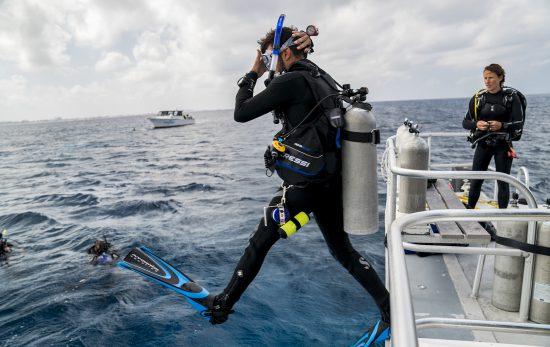In our recent Advice to New Divers from a PADI Instructor – Part 1, we covered four PADI Instructor top tips for a new diver. As a new diver however, there is always more to learn.
Here are four additional tips to help you as a beginner.
- Control your weight problem. We’re not talking about going on a diet here. We’re talking about the weight in (or on) your weight system. It’s easy for new divers to overweight themselves – please don’t do this. Take the time to experiment and fine tune your weighting. The payoff is neutral buoyancy throughout your dive, which is the holy grail of being a good diver. The trick is to do a weight check at the end of your dive when your tank has less air. Why is the mastery of buoyancy so important? Under water, neutral buoyancy will keep you from bumping into the reef, helps with controlled descents, reduces the risk of ear injuries, and improves your air consumption. At the surface, being able to easily establish positive buoyancy will keep you from struggling to stay afloat.
- Keep a logbook. Since the amount of weight differs with each exposure suit, every diver has several weight configurations to remember. Once you’ve found the perfect amount of weight, write it down in your logbook. You won’t realise it at first, but recording your weight and wetsuit thickness in your logbook will be a tremendous help later. Your future self will thank you because you’ll know how much weight you need to get started.
- Equalise early and often. Let’s face it; epic battles with angry animals underwater only happen in the movies. You’re much more likely to have a battle clearing your ears. If you descend faster than your ability to equalise, you put yourself at risk for an ear injury. Use a descent line to help gauge your speed. The moment you feel any discomfort, stop and go back up a bit until you no longer feel the discomfort. Equalise the pressure in your ears before continuing. Like we said earlier, master your buoyancy so you can enjoy a nice, slow trip to your planned depth.
- Continue your education. If we were to sum up the advice given in this post, it would be “log more dives.” Just like any new hobby, practice is key to mastering your skills. A great way to dive more is to enrol in another scuba course. Your favourite PADI dive shop offers many different specialty courses. The PADI Adventures in Diving program is an excellent introduction to these specialties. As a new diver, taking another course is like having a coach to help you set goals and prevent you from forming bad habits.
What advice or tips would you provide to other new divers?
Want more advice? Speak to a PADI Instructor by finding your local PADI Dive Shop.
